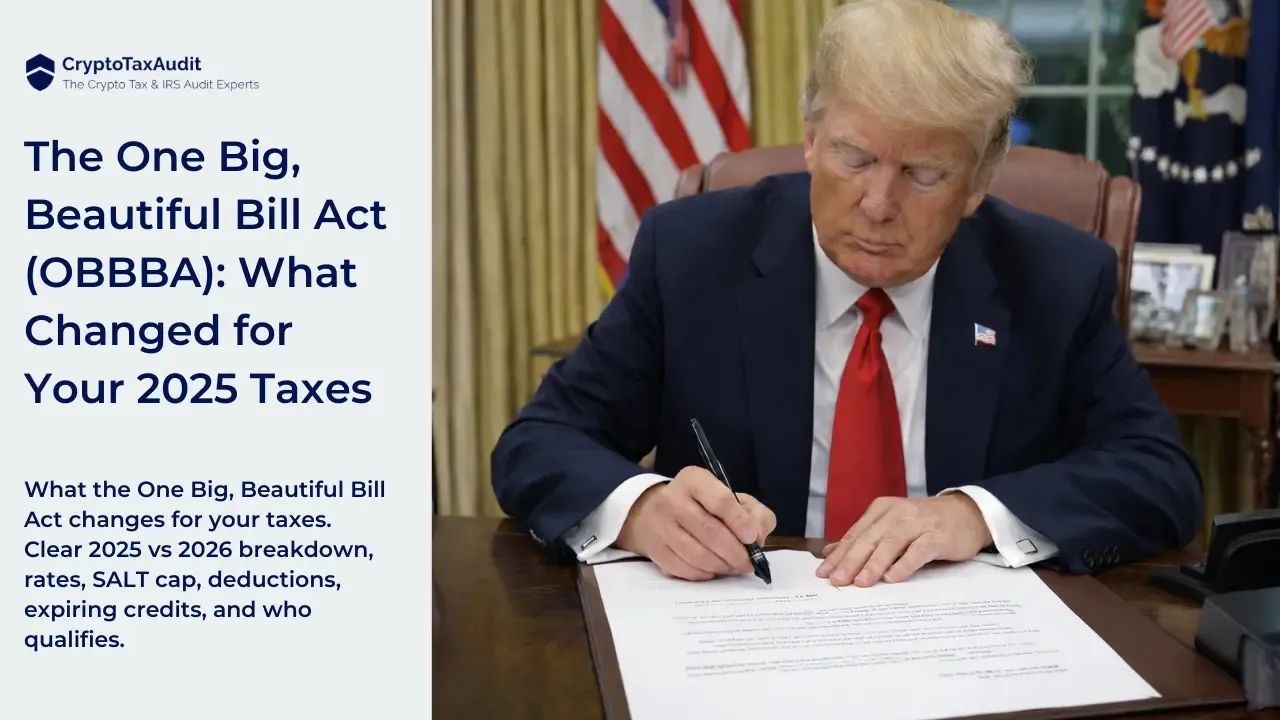
Attention Crypto Investors and Traders!
Are you confident in your knowledge of FBAR compliance? If not, it's time to take note! The Foreign Bank Account Report (FBAR) isn't just a formality - it's a critical requirement with significant implications, especially for cryptocurrency investors who may be unaware of certain filing requirements.
Here’s Why This Matters:
Ignoring FBAR can be a costly mistake. Missing your filing can lead to a hefty $10,000 penalty, and that's just for starters.
The clock on the statute of limitations doesn't begin ticking until you've filed. This means potentially unlimited exposure to audits and penalties.
Many CPAs and tax professionals are still catching up with the complexities of FBAR, particularly concerning crypto assets. Don't fall into the trap of thinking, "my accountant's got this."
And here’s the kicker, when it comes to compliance with foreign reporting, what you don't know CAN hurt you!
So, What’s Next?
Continue reading to understand FBAR compliance comprehensively, which is especially relevant for cryptocurrency investors. There's a solution if you're uncertain about your past FBAR filings or overlooked filing entirely. Connect with us at CryptoTaxAudit.com.
Why choose us?
- Our experience includes resolving over 1200 cases involving undisclosed foreign assets.
- We have meticulously prepared close to 4000 tax returns with FBAR compliance requirements.
- With our expert advice, you can ensure accurate compliance, setting the statute of limitations in motion.
- Let’s simplify the complexities of FBAR together. Stay informed and protected with CryptoTaxAudit – your ally in navigating these crucial requirements.
FBAR Filing and Crypto Assets
The Foreign Bank Account Report (FBAR), officially FinCEN Form 114, is a crucial compliance document for individuals with foreign financial interests. Managed by the IRS on behalf of the Financial Crimes Enforcement Network (FinCEN), FBAR filing requirements have significant implications, especially for cryptocurrency holders.
According to the current guidelines under FinCEN Notice 2020-2, foreign accounts exclusively holding cryptocurrency are not required to be reported in the FBAR. However, it's important to note that this does not apply if the account contains other reportable assets. Examples of these reportable assets include, but are not limited to, foreign bank accounts, foreign securities, and investments in foreign mutual funds or similar pooled funds.
The expectation is that the reporting requirement of crypto assets will change. FinCEN has indicated plans to amend the Bank Secrecy Act (BSA) regulations to include crypto assets as a reportable account type. While there have been no updates on this proposed change as of March 2024, the possibility of inclusion demands attention from crypto investors and tax professionals.
Definition of a U.S. Person for FBAR Purposes
The FBAR filing requirement applies to every 'U.S. person,' which encompasses:
- U.S. citizens, regardless of where they live.
- Residents, including green card holders and individuals who meet the substantial presence test.
- Entities like corporations, partnerships, or trusts formed under U.S. laws.
Detailed Criteria for Financial Interests
In addition to the accounts already mentioned, FBAR reportable accounts include:
- Bank Accounts: Savings, demand deposits, checking, or any other account with banking entities.
- Securities Accounts: Accounts with entities engaged in the buying, selling, holding, or trading securities.
- Other Financial Accounts: Including those in financial agencies, insurance or annuity policies with cash value, and accounts with brokers for futures or options transactions.
FBAR Filing Threshold and Due Date
The requirement to file an FBAR is triggered if the total value of all foreign financial accounts exceeds $10,000 at any time during the calendar year. This threshold is based on the aggregate value of multiple accounts, not just a single account.
The FBAR must be filed by April 15 of the year following the calendar year being reported. There is an automatic extension to October 15 if you fail to meet the original April 15 deadline. No specific request is required for this extension.
Current FBAR Penalties and Expectations for Crypto Holders
Cryptocurrency investors should be aware of the current FBAR penalties. A lack of compliance, absent a valid reason, can lead to a $10,000 fine. This amount also applies if taxpayers disregard an IRS notice to file an FBAR. These penalties indicate the seriousness with which the IRS views these reporting requirements.
While accounts holding only cryptocurrencies are not currently required to be reported on the FBAR, potential regulatory changes could modify this exemption. Therefore, cryptocurrency holders with foreign account holdings should actively monitor for any updates in FBAR regulations, and when in doubt, it is better to report and avoid costly penalties.
Preparation for these changes includes regular reviews of foreign account holdings, particularly those involving cryptocurrencies. Seeking advice from a tax professional with expertise in international tax law and crypto assets can help ensure compliance with evolving regulations. Staying informed and proactive can help cryptocurrency investors avoid significant penalties.
Conclusion
For cryptocurrency holders with foreign accounts, the potential changes in FBAR regulations are a critical concern. It is essential to keep up-to-date with these developments as there are steep penalties for non-compliance. At CryptoTaxAudit, we specialize in international tax compliance and cryptocurrency regulations. We recommend scheduling a consultation with our experts to ensure compliance and avoid penalties.





